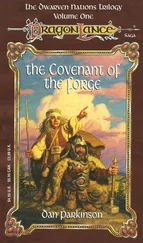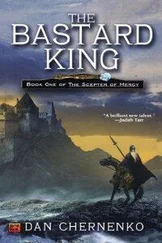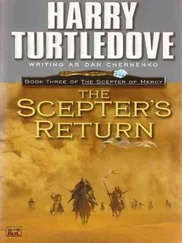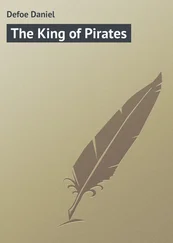“Come along with me, then, Your Majesty,” the guard said.
When Lanius walked into Otus’ little room, the ex-thrall bowed low. “Hello, Your Majesty,” he said. “How are you today?” He was scrupulously polite. Only that lingering old-fashioned southern accent spoke of his origins. “What can I do for you?”
“I’m fine, thanks,” Lanius replied. “I came by because I wondered how you were getting along.”
“Me? Well enough.” Otus laughed. “I’ve got plenty to eat. No one has given me much work to do. I even get to be clean. I remember what things were like on the other side of the river. Most ways, I’m as happy as a cow in clover.”
“Most ways?” There was the opening Lanius had been looking for. “How aren’t you happy? How can we make you happy?”
“Well, there is a girl here I’ve set my eye on.” Otus was very direct. Maybe that sprang from his years as a thrall, when he couldn’t have hidden anything and didn’t have anything worth hiding. Or maybe it was simply part of his nature. Lanius didn’t care to guess. Otus went on, “I don’t know if she wants anything to do with me.” He sighed. “If I had my own woman here—if she was cured, I mean—I wouldn’t look twice at anybody else, but I’m lonesome.”
“I understand,” Lanius said. “Have you tried finding out what this girl thinks of you?”
“Oh, yes.” The ex-thrall nodded. “But it’s hard to tell, if you know what I mean. She doesn’t come right out and say what she wants. She makes me guess.” He sent Lanius a wide-eyed, guileless smile. “Is this what it’s like when everybody is awake inside all the time?”
“It can be,” Lanius said. “Are things more complicated than you’re used to?”
“Complicated! That’s the word!” Otus nodded again, more emphatically this rime. “I should say so! What can I do?”
“Keep trying to find out. That’s about all I can tell you,” Lanius answered. “No, one thing more—I hope you have good luck.”
“Thank you, Your Majesty.” Suddenly, Otus looked sly. “Can I tell her you hope I have good luck? If she hears that, maybe it will help me have the luck I want to have.”
Lanius said, “You can if you want to. I hope it does.” When he left the ex-thrall’s chamber, he told the guards, “If he needs privacy, give him enough. Make sure he can’t go wandering through the palace without being watched—that, yes. But you don’t need to stay in the same room with him.”
The guards smiled and nodded. One of them said, “Curse me if I’d want company then—except the girl, of course.”
“Yes. Except the girl. That’s what I meant,” the king said.
“Are you sure it’s safe, Your Majesty?” a guardsman asked.
“No, I’m not sure,” Lanius answered. “But I think so. Pterocles likely did cure him of being a thrall. And if the wizard didn’t, I expect the lot of you will be able to keep Otus from doing too much harm.”
The soldiers nodded. By their confidence, they expected the same thing. The man who’d first spoken with the king grinned and said, “There’s one thing more. We know Otus wants to be alone with Calypte, not if she wants to be alone with him.”
“True enough. We don’t,” Lanius said. “But I’ll tell you this much— I think Otus has earned the chance to find out. Don’t you?” The guardsmen looked at one another as they considered. Then, in better unison than they’d shown a moment earlier, they nodded once more.
King Grus had overthrown Prince Vasilko and reverence for the Banished One in Nishevatz. He’d persuaded Prince Lazutin in Hisardzik that backing the Banished One and joining in attacks against Avornis wasn’t the smartest thing Lazutin could have done—persuaded him expensively, a way a man who was a merchant when he couldn’t get away with piracy would remember. Now Grus led the Avornan army east toward Jobuka, which had also joined in raids along the Avornan coast. He wanted all the Chernagors to learn they could not hairy their southern neighbor with impunity.
As the army moved east, Grus kept a wary eye on the weather and on the crops ripening in the fields. When the harvest was done, the army wouldn’t be able to live off the land anymore and he would have to go home, and he wanted to remind not only Jobuka but also Hrvace, which lay farther east still, of his existence.
Ravno, which ruled the land between Hisardzik and Jobuka, was unfriendly to both of them, and had not sent ships to join the raiders who’d ravaged the eastern coast of Avornis. Grus ordered his men not to plunder the countryside as they traveled through Ravno’s territory. In gratitude, Prince Osen, who ruled the city-state, sent supply wagons to the Avornan army. Along with the wagons still coming up from Avornis itself, they kept Grus’ men well supplied with grain.
“I know what we ought to do,” Hirundo said as the army encamped one evening. The setting sun streaked his gilded helmet and mailshirt with blood. “We ought to set up as bakers.”
“As bakers?” Grus echoed, eyeing the grizzled streaks in the general’s beard. They’d both been young officers when they first met, Hirundo the younger. Hirundo was still younger than Grus, of course, but neither of them was a young man anymore. Where did all the years go? Grus wondered. Wherever they were, he wouldn’t get them back.
Hirundo, meanwhile, bubbled with enthusiasm. “Yes, bakers, by Olor’s beard. We’ve got all this wheat. We can bake bread and sell it cheaper than anybody in the Chernagor city-states. We’ll outdicker all the merchants, leave ’em gnashing their teeth, and go home rich.” He beamed at Grus.
Grus smiled back. You couldn’t help smiling when Hirundo beamed. “Do you know what?” Grus said. Still beaming, Hirundo shook his head. “You’re out of your mind,” Grus told him.
With a bow, the general said, “Why, thank you very much, Your Majesty.” Grus threw his hands in the air. Some days, you were going to lose if you argued with Hirundo.
Jobuka wasn’t as strongly situated as either Nishevatz or Hisardzik. To make up for that, the Avornans who’d built the town and the Chernagors who’d held it for centuries had lavished endless ingenuity on its walls. A wide, fetid moat kept would-be attackers from even reaching those walls until they had drained it, and the defenders could punish them while they were working on that. Grus would not have wanted to try to storm the town.
But, as at Hisardzik, he didn’t have to. He needed to appear, to scare the city-state’s army inside the walls, and then to position himself to devastate the countryside if Prince Gleb paid him no attention. That all proved surprisingly easy. If the Chernagors didn’t care to meet his men in the open field—and they made it very plain they didn’t—what choice did they have but falling back into their fortress? None Grus could see. And once they did fall back, that left the countryside wide open.
Instead of starting to burn and plunder right away, Grus sent a man under a flag of truce up to the moat—the drawbridge over it that led to the main gate had been raised. The herald bawled out that Grus wanted to speak with Prince Gleb, who led Jobuka, and that he wouldn’t stay patient forever if Gleb chose not to speak to him. That done, the Avornan tramped back to the army.
Gleb came out the next day, also under a flag of truce. He didn’t lower the drawbridge, but emerged from a postern gate and crossed the moat in a small boat. One guard accompanied him. “He is a symbol only,” the Prince of Jobuka said in good Avornan. “I know I could not bring enough men to keep me safe in your midst.”
“He is welcome, as you are welcome,” Grus replied, trying to size Gleb up. The prince was older than Lazutin, older than Vasilko— not as old as I am, Grus thought sadly. Gleb looked much more ordinary than the clever, saturnine Lazutin. His beard needing combing and his nose, though large, had no particular shape. His eyebrows were dark and luxuriant.
Читать дальше











